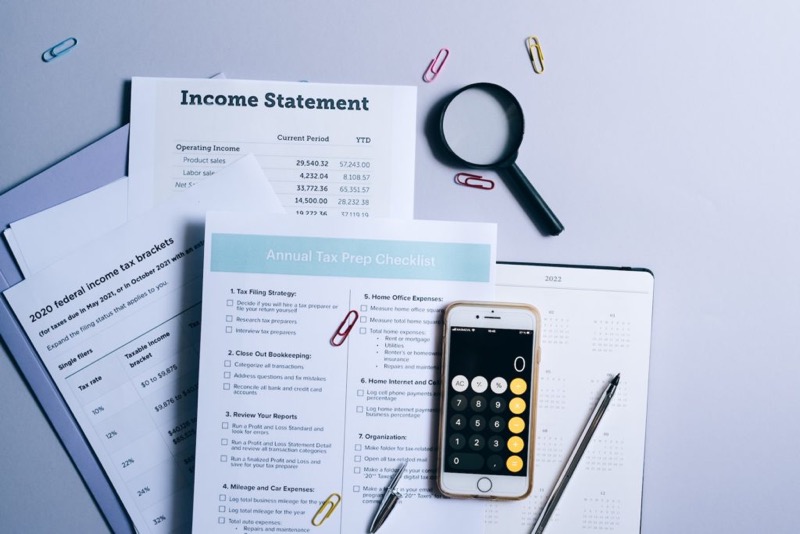Accountancy vs. Accounting: What’s the Difference?

“Accountancy” is not the same as “accounting” even if people often use them interchangeably. These two terms are familiar to anyone interested or involved in finance, and many do not know how accountancy differs from accounting.
Between the two, accountancy has a broader scope as it covers the principles and concepts to guide financial reporting and its application.
Accounting, on the other hand, is more procedural since it lays out the steps for maintaining a company’s financial reports.
Here’s a deeper look at the differences between accountancy and accounting.
What is Accountancy?
According to the Merriam-Webster dictionary, accountancy refers to the profession or the practice of accounting.[1]
While this meaning doesn’t provide a clear definition of accountancy, the industry understands accountancy as an umbrella term that covers many concepts.
Accountancy provides practices, principles, and the framework for collating, processing and using financial data. Accountants rely on these concepts to generate reports for management and regulatory purposes.
However, the scope of accountancy does not end with financial reporting. It involves other areas, such as analyzing costs, budgeting, and forecasting.
Since accountancy also includes financial analysis, almost everyone involved in decision-making needs some knowledge of accountancy. Bookkeepers, managers, CFOs, CEOs, executives, and anyone involved in running a business must understand accountancy to make smarter decisions.
What is Accounting?
Accounting is a versatile word, often used to be a blanket term for professionals working in accounting.
In practice, payroll administrators, accounts receivable clerks, accounts payable specialists, and bookkeepers fall under the category of accounting professionals.
However, the term accounting takes on a different meaning when compared side by side with “accountancy.”
Here, accounting refers to the process involved in recording the financial transactions of a business. The accounting process, therefore, focuses on the administrative and clerical side.
The work bookkeepers do, such as recording invoices, creating journal entries, and reconciling bank accounts, fall under accounting.
Accounting itself can also be divided into different types – financial accounting, cost accounting, and managerial accounting.
Financial accounting deals mainly with financial transactions and focuses on the rules for processing financial records to create the statement of financial position and performance and cash flow statements.
Cost accounting deals with financial records related to expenses to produce a product or service and decide on the selling price. Managerial accounting focuses on creating reports for internal users – like CEOs, CFOS, and line managers, and may involve calculations for make-or-buy decisions or discontinuing a product line.
Why Do People Use Accountancy and Accounting Interchangeably?
Accountancy is a large umbrella that covers many disciplines, including accounting.
Professionals, including accountants, learn accountancy which lays out the principles and uses accounting to create a financial report. Usage of accountancy and accounting often overlap, making it easy to use the two terms as synonyms.

University degrees do not provide much distinction between the two terms either. Some educational institutions offer Bachelor of Science in Accountancy programs, while other universities have a Bachelor of Science in Accounting degree.
Collecting, recording, and putting a balance sheet in good form is under accounting. However, accounting is part of accountancy, so balance sheet preparation is both accountancy and accounting. On the other hand, financial report interpretation and making decisions based on the information in accountancy.
The Generally Accepted Accounting Principles that guide financial statement preparers is an area where accountancy and accounting intersect – this adds more confusion to how one term is distinct from the other.
Auditors, accountants, and bookkeepers know accountancy to perform proper accounting for clients.
How is Accountancy Different from Accounting?
Accountancy and accounting have subtle differences in the following aspects.
Scope
As mentioned above, accountancy has a broader scope than accounting. Accountancy is more conceptual as it covers the underlying principles and rules in accounting. On the other hand, accounting is more about application since it details the steps needed to put accountancy concepts to practical use.
Income statement and balance sheet preparation are under the realm of accounting. However, making decisions using accounting reports falls under accountancy.
Focus
Accounting is a technical process, and the focus tends to be on calculations required for creating financial statements. On the other hand, accountancy concentrates on regulations, principles, and the ethics behind the steps that preparers follow to make reports for internal and external use.

Function
Determining the financial position and financial performance of the business is the main function of accounting. Accounting exists to communicate total business assets, liabilities, equity, income, and expenses through financial reports.
On the other hand, accountancy comes into play once the financial statements are ready for review. The backbone of accountancy lies with rules, conventions, and concepts with the ultimate goal of making smarter decisions.
Preparers of financial information
Bookkeepers and financial statement preparers that process financial data perform the accounting function. Meanwhile, business owners, top management, and supervisors apply accountancy to help them strategize based on the business’s financial situation.
Accountants, compliance officers, and auditors deal with accounting and accountancy since they have to understand both the technical and analytical parts of the process.
Why Accountancy is Essential for a Successful Business
Accountancy and accounting have subtle differences that make them appear more similar than different. Today, accountancy is becoming increasingly linked with entrepreneurship.
Anyone engaged in business should have some knowledge of accountancy. Understanding accountancy – its concepts and principles – is vital in this era where technology makes self-service data possible.
A survey by Garner revealed that 49% consider self-service data and analytics as the driver of employee productivity and 27% believe that it improves speed and agility.[2] As technology automates many accounting steps, users with access to data have to interpret information on their own.
As automation eliminates many manual tasks, employees have to refocus from accounting to accountancy. Without sufficient accountancy knowledge, decision-makers could misunderstand information and make the wrong judgment calls.
Successful organizations can’t escape digital transformation, and it pays to upskill and brush up your knowledge of both accountancy and technology to add more value to your organization.
Learn how technology is making waves in the accounting profession and why it’s critical to have a broader understanding of accountancy to make the most of accounting innovations.
STAY ALWAYS TUNED
Subscribe to newsletter
STAY ALWAYS TUNED
Still not sure?
- Don’t spend time on manual work
- Streamline processes with AI
- Automate your invoice flow
- Integrate with the tools you rely on every day












